— Albert Camus
quoth the madman
— Albert Camus
literacki
I twist like a sunflower
At the sound of your voice
— Kait Rokowski, from “The Civil Guillotine” in So Much For the Mercy Kill
ponder
and to this quick spark in the emptiness
to say Yes I miss how love
may make us otherwise
— Craig Arnold, from “asunder”
quoth the madman
My yesterdays walk with me. They keep step, they are gray faces that peer over my shoulder.
— William Golding
literacki
When I saw him look at me with lust, I dropped my eyes but, in glancing away from him, I caught sight of myself in the mirror. And I saw myself, suddenly, as he saw me… And, for the first time in my innocent and confined life, I sensed in myself a potentiality for corruption that took my breath away.
— Angela Carter, The Bloody Chamber
quoth the madman
If you cry because the sun has gone out of your life, your tears will prevent you from seeing the stars.
— Rabindranath Tagore
ars poetica
I am not a graceful person. I am not a
Sunday morning or Friday sunset. I am a
Tuesday 2am, I am gunshots muffled by a
few city blocks, I am a broken window
during February. My bones crack on a
nightly basis. I fall from elegance with a
dull thud, and I apologize for my
awkward sadness. I sometimes believe
that I don’t belong around people, that I
belong to all the leap days that didn’t
happen. The way the light and darkness mix
under my skin has become a storm.
You don’t see the lightning, but you hear the
echoes.
— Anna Peters
literacki
… the pang of tenderness remained, akin to the vibrating outline of verses you know you know but cannot recall.
— Vladimir Nabokov, from Pnin (Heinemann, 1957)
ponder


I love the French language. I have sampled every language, French is my favourite - fantastic language, especially to curse with. Nom de Dieu de putain de bordel de merde de saloperies de connards d’enculé de ta mère. It’s like wiping your arse with silk, I love it.
— The Matrix: Reloaded, 2003
ponder
… And you O my soul where you stand,
Surrounded, detached, in measureless oceans of space,
Ceaselessly musing, venturing, throwing, seeking the spheres to connect them,
Till the bridge you will need be form’d, till the ductile anchor hold,
Till the gossamer thread you fling catch somewhere, O my soul.
— Walt Whitman, closing strophe to “A noiseless patient spider,”
literacki






We are alone, darling child, terribly, isolated each from the other; so fierce is the world’s ridicule we cannot speak or show our tenderness; for us, death is stronger than life, it pulls like a wind through the dark, all our cries burlesqued in joyless laughter; and with the garbage of loneliness stuffed down us until our guts burst bleeding green, we go screaming round the world, dying in our rented rooms, nightmare hotels, eternal homes of the transient heart.
— Truman Capote, Other Voices, Other Rooms
ars poetica
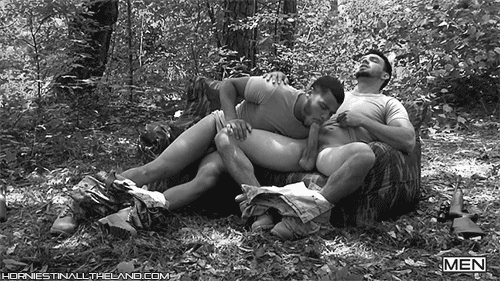
somewhere behind the napes,
armorial backbone.
ripeness that goes on and on.
a kayak, waist-deep.
in blood is where the acorn grows.
which means the world
is ravenous.
i want to eat my cake
and have it.
lover, am i not your invention?
— Uche Nduka, "somewhere behind the napes"
ars poetica

There is in certain living souls
a quality of loneliness unspeakable,
so great it must be shared
as company is shared by lesser beings.
Such a loneliness is mine; so know by this
that in immensity
there is one lonelier than you.
— Theodore Sturgeon, A Saucer of Loneliness
literacki
The loveliest things in life are but shadows; they come and go, and change and fade away…
— Charles Dickens, Martin Chuzzlewit
quoth the madman
I will no longer mutilate and destroy myself in order to find a secret behind the ruins.
— Hermann Hesse
ponder
Beneath the clothing is the skin
and beneath the skin, viscera, bones
but beneath that there is just the skin
of the other side so clearly something
is unaccounted for.
— From Sky Dive by Dean Young
ars poetica
whiskey makes the heart beat faster
but it sure doesn’t help the
mind and isn’t it funny how you can ache just
from the deadly drone
of existence?
— Charles Bukowski, Purple Glow
ars poetica

I doubt not God is good, well-meaning, kind
And did He stoop to quibble could tell why
The little buried mole continues blind,
Why flesh that mirrors Him must some day die,
Make plain the reason tortured Tantalus
Is baited by the fickle fruit, declare
If merely brute caprice dooms Sisyphus
To struggle up a never-ending stair.
Inscrutable His ways are, and immune
To catechism by a mind too strewn
With petty cares to slightly understand
What awful brain compels His awful hand.
Yet do I marvel at this curious thing:
To make a poet black, and bid him sing!
— Countée Cullen, “Yet Do I Marvel”
literacki

Those images were the world, and it stewed in her as she sat with the lovely books and their manicured titles. It brewed in her as she eyes the pages full to the brims of their bellies with paragraphs and words.
You bastards, she thought.
You lovely bastards.
— Markus Zusaf, from The Book Thief
ponder
There is something arbitrary in stopping here to look back and look around, in his not digging deeper here but laying his spade aside; there is also something suspicious about it. Every philosophy also conceals a philosophy; every opinion is also a hideout, every word also a mask.
— Friedrich Nietzsche, Beyond Good and Evil
ponder
Run my dear,
from anything that may not strengthen your precious budding wings.
Run like hell my dear,
from anyone likely to put a sharp knife Into the sacred,
tender vision of your beautiful heart.
— Hafiz
quoth the madman

Finish each day and be done with it. You have done what you could.
— Ralph Waldo Emerson, Essay VIII: Nominalist and Realist
literacki
…like a flash of lightning between the clouds. We live in the flicker…
— Joseph Conrad, Heart of Darkness
ponderous
Love’s language is hyperbole, but whispered.
It’s easy to imagine you’ve misheard.
— Richard Hoffman, Aphrodisia
literacki
— Oscar Wilde, The Picture of Dorian Gray
ponderous
What should I do about the wild and the tame? The wild heart that wants to be free, and the tame heart that wants to come home. I want to be held. I don’t want you to come too close. I want you to scoop me up and bring me home at nights. I don’t want to tell you where I am. I want to keep a place among the rocks where no one can find me. I want to be with you.
— Jeanette Winterson, Lighthousekeeping
pondering
Your voice reverberated against my body like another kind of caress, another kind of penetration.
— Anaïs Nin, A Literate Passion: Letters of Anaïs Nin & Henry Miller, 1932-1953
quoth the madman
The more you throw black into a color, the more dreamy it gets…Black has depth. It’s like a little egress, you can go into it, and because it keeps continuing to be dark, the mind kicks in, and a lot of things that are going on there become manifest. And you start seeing what you’re afraid of. You start seeing what you love and it becomes like a dream…
— David Lynch
ponder
There are tears which pierce through the earth and rise as stars in other skies. I wonder who has wept our stars?
— E.M. Cioran
ponder

The shadow-past is shaped by everything that never happened. Invisible, it melts the present like rain through karst. A biography of longing. It steers us like magnetism, a spirit torque. This is how one becomes undone by a smell, a word, a place, the photo of a mountain of shoes. By love that closes its mouth before calling a name.
— Anne Michaels, Fugitive Pieces
words and music

There is no dark side in the moon, really. Matter of fact, it’s all dark.
— Pink Floyd, from “Eclipse,” The Dark Side of the Moon
ponder

Humans are the only animal that blushes, laughs, has religion, wages war, and kisses with lips. So in a way, the more you kiss with lips, the more human you are. And the more you wage war.
— Jonathan Safran Foer, Extremely Loud and Incredibly Close
ars poetica
the worst part of it all,
how your name will
sound so unfamiliar
coming from familiar lips
that have forgotten
how to love you.
pondering
I need words that mean more than they mean, words not just with height and width, but depth and weight and, and other dimensions that I cannot even name.
— Lois McMaster BujoLd
ars poetica
Are ye the ghosts of fallen leaves, O flakes of snow, For which, through naked trees, the winds A-mourning go?
— John B. Tabb
literacki
As always, silence will have the last word,
— Charles Wright, from “The Southern Cross,” The Southern Cross
ponder
The advantage of the emotions is that they lead us astray…
— Oscar Wilde, The Picture of Dorian Gray
ponder
Dark be not dark but some other desire
— Andrew Zawacki, closing line to “Slipknot 7,” By Reason of Breakings
ars poetica

I have sea foam in my veins, I understand the language of waves.
— Jean Cocteau, Le Testament d’Orphée
literacki

They had never been closer in their month of love nor communicated more profoundly with one another, than when she brushed silent lips against his coat’s shoulder or when he touched the end of her fingers, gently, as though she were asleep.
— F. Scott Fitzgerald, The Great Gatsby
ponder
The people who say you are not facing reality actually mean that you are not facing their idea of reality. Reality is above all else a variable. With a firm enough commitment, you can sometimes create a reality which did not exist before.
— Margaret Halsey
ponder
An artist should not fall in love with another artist.
A poet should not fall in love with another poet.
Play it safe. It’s easier that way.
Kiss people who can’t understand why you cry when the sun sets,
who think it is because you’re afraid of the dark.
— Emery Allen
ponderous
What is the point of being alive if you don’t at least try to do something remarkable?
— John Green, An Abundance of Katherines
ponder
So much of what we live goes on inside–
The diaries of grief, the tongue-tied aches
Of unacknowledged love are no less real
For having passed unsaid. What we conceal
Is always more than what we dare confide.
Think of the letters that we write our dead.
— Dana Gioia, Unsaid
ponder
ponder
ponder
ponder

Some people don’t seem to know the difference between ‘causal’ and ‘casual’. Well, there’s no such thing as ‘causal’ Friday because determinism doesn’t care what day of the week it is.
ars poetica
“But I’d say
you must die a little,
have a book of matches go off in your hand,
see your best friend copying your exam,
visit an Indian reservation and see
their plastic feathers,
the dead dream.
One must be a prisoner just once to hear
the lock twist into his gut.
After all that
one is free to grasp at the trees, the stones,
the sky, the birds that make sense out of air.”
you must die a little,
have a book of matches go off in your hand,
see your best friend copying your exam,
visit an Indian reservation and see
their plastic feathers,
the dead dream.
One must be a prisoner just once to hear
the lock twist into his gut.
After all that
one is free to grasp at the trees, the stones,
the sky, the birds that make sense out of air.”
— Anne Sexton, from The Evil Seekers
literacki
It had flaws, but what does that matter when it comes to matters of the heart? We love what we love. Reason does not enter into it. In many ways, unwise love is the truest love. Anyone can love a thing because. That’s as easy as putting a penny in your pocket. But to love something despite. To know the flaws and love them too. That is rare and pure and perfect.
— Patrick Rothfuss, The Wise Man’s Fear
quoth the madman
Remember me as one of your lovers,
not the greatest of these, not the least,
but in some way small way distinguished from all the others.
— Tennessee Williams
ponder
The same [voice] that oft-times hath
Charm’d magic casements, opening on the foam
Of perilous seas, in faëry lands forlorn.
— John Keats, Ode To A Nightingale
pondeous
"...I see you, tender even on your hardest days. I forgive you, waiting for him to call. I forgive you, the diets and the cruel friends. Especially for that one time you said ‘I fucking give up on love, it’s not worth it, I’d rather be alone forever’. you were just pretending, weren’t you? i know you didn’t mean that. Your body, your mouth, your heart, made specifically for loving. sometimes the things we love, will kill us, but weren’t we dying anyway? I forgive you for being something that will eventually die. Perishable goods, fading out slowly, little human, I wouldn’t want to be in a world where you don’t exist.”
— Warsan Shire, “And Were You Being Good to Yourself?”
ponder
"With whom does the historicism actually sympathize? The answer is inevitable: with the victor. And all rulers are the heirs of prior conquerors. Hence, empathizing with the victor invariably benefits the current rulers. The historical materialist knows what this means. Whoever has emerged victorious participates to this day in the triumphal procession in which current rulers step over those who are lying prostrate. According to traditional practice, the spoils are carried in the procession. They are called ‘cultural treasures,’ and a historical materialist views them with cautious detachment. For in every case these treasures have a lineage which he cannot contemplate without horror. They owe their existence not only to the efforts of the great geniuses who created them, but also to the anonymous toil of others who lived in the same period. There is no document of culture which is not at the same time a document of barbarism."
— Walter Benjamin, The Concept of History
ponderous
"The tradition of the oppressed teaches us that the ‘state of emergency’ in which we live is not the exception but the rule. We must attain to a conception of history that accords with this insight. Then we will clearly see that it is our task to bring about a real state of emergency, and this will improve our position in the struggle against fascism. One reason fascism has a chance is that, in the name of progress, its opponents treat it as a historical norm. –The current amazement that the things we are experiencing are 'still’ possible in the twentieth century is not philosophical. This amazement is not the beginning of knowledge – unless it is the knowledge that the view of history which gives rise to is is untenable."
— Walter Benjamin, The Concept of History
ponder
~Miz Hyacinth, my grandmother
literacki
— Theodor W. Adorno, Dialectic of Enlightenment
literacki
— Walter Benjamin, The Concept of History
ponderous
Like all things in the universe, we are destined from birth to diverge. Time is simply the yardstick of our separation. If we are particles in a sea of distance, exploded from an original whole, then there is a science to our solitude. We are lonely in proportion to our years.
— Ian Caldwell, Dustin Thomason, The Rule of Four
ponder
I like people who dream or talk to themselves interminably; I like them, for they are double. they are here and elsewhere.
– Camus
ponderous
a dream, all a dream, that ends in nothing, and leaves the sleeper where he lay down, but I wish you to know that you inspired it.
– Dickens
ponder

Everyone’s chest is a living room wall with awkwardly placed photographs hiding fist-shaped holes. ~ Andrea Gibson
ponder
Another circumstance, too, worried me in those days: that there was no one like me and I was unlike anyone else. “I am alone and they are everyone,” I thought - and pondered.
— Fyodor Dostoyevsky, Notes from Underground
literacki

To a sensitive being, pity is not seldom pain.
— Herman Melville, “Bartleby, the Scrivener”
ponder
And I swear to you by the garden of the angels,
I swear by the miracle-working icon,
And by the fire and smoke of our nights:
I will never come back to you.
— Anna Akhmatova, excerpt of “You Thought I Was That Type”
The play's the thing
“Princess, the age of some people can only be calculated by the level of… rot in them. And by that measure, I’m ancient.”
— Tennessee Williams, Sweet Bird of Youth
ponder
“The idea itself, even if not made visual, is as much a work of art as any finished product.”
— Sol LeWitt, Paragraphs on Conceptual art
literacki
“Do not mistake me for my mask. You see light dappling on the water and forget the deep, cold dark beneath.”
— Patrick Rothfuss, The Name of the Wind
literacki
“Some people reflect light, some deflect it, you by some miracle, seem to collect it.”
— Mark Z. Danielewski, House of Leaves
ponder
Beautiful things grow out of shit. Nobody ever believes that. Everyone thinks that Beethoven had his string quartets completely in his head—they somehow appeared there and formed in his head—and all he had to do was write them down and they would be manifest to the world. But what I think is so interesting, and would really be a lesson that everybody should learn, is that things come out of nothing. Things evolve out of nothing. You know, the tiniest seed in the right situation turns into the most beautiful forest. And then the most promising seed in the wrong situation turns into nothing. I think this would be important for people to understand, because it gives people confidence in their own lives to know that’s how things work.
If you walk around with the idea that there are some people who are so gifted—they have these wonderful things in their head but and you’re not one of them, you’re just sort of a normal person, you could never do anything like that—then you live a different kind of life. You could have another kind of life where you could say, well, I know that things come from nothing very much, start from unpromising beginnings, and I’m an unpromising beginning, and I could start something.
— Brian Eno,
ponderous
“I want someone who is fierce and will love me until death and knows that love is as strong as death, and be on my side forever and ever. I want someone who will destroy and be destroyed by me.”
— Jeanette Winterson, Oranges are Not the Only Fruit
ponderous:

“Freedom is measured by the resistance that needs to be overcome and the effort that it costs to stay on top.”
— Friedrich Nietzsche, Twilight of the Idols
ars poetica
There is a silence where hath been no sound,
There is a silence where no sound may be,
In the cold grave—under the deep, deep sea,
Or in wide desert where no life is found,
Which hath been mute, and still must sleep profound.
— Hood, Sonnets. Silence.
ponder



If God created the world, where was he before the creation? If you say he was transcendent then and needed no support, where is he now?
How could God have made this world without any raw material? If you say
that he made this first, and then the world, you are faced with an
endless regression.
If you declare that this raw material arose naturally you fall into another fallacy, for the whole universe might thus have been its own creator, and have arisen quite naturally.
If God created the world by an act of his own will, without any raw material, then it is just his will and nothing else — and who will believe this silly nonsense?
If he is ever perfect and complete, how could the will to create have arisen in him? If, on the other hand, he is not perfect, he could no more create the universe than a potter could.
If he is form-less, action-less and all-embracing, how could he have created the world? Such a soul, devoid of all modality, would have no desire to create anything.
If he is perfect, he does not strive for the three aims of man, so what advantage would he gain by creating the universe?
If you say that he created to no purpose because it was his nature to do so, then God is pointless. If he created in some kind of sport, it was the sport of a foolish child, leading to trouble.
If he created because of the karma of embodied beings (acquired in a previous creation), then he is not the Almighty Lord, but subordinate to something else.
If out of love for living beings and need of them he made the world, why did he not make creation wholly blissful free from misfortune?
If he were transcendent he would not create, for he would be free: Nor if involved in transmigration, for then he would not be almighty. Thus the doctrine that the world was created by God makes no sense at all.
And God commits great sin in slaying the children whom he himself created. If you say that he slays only to destroy evil beings, why did he create such beings in the first place?
Good men should combat the believer in divine creation, maddened by an evil doctrine. Know that the world is uncreated, as time itself is, without beginning or end, and is based on the principles, life and rest. Uncreated and indestructible, it endures under the compulsion of its own nature."
~ Ācārya Jinasena in Mahāpurāna - Jain opposition to Creationism- (which was quoted by Carl Sagan in his book Cosmos)
If you declare that this raw material arose naturally you fall into another fallacy, for the whole universe might thus have been its own creator, and have arisen quite naturally.
If God created the world by an act of his own will, without any raw material, then it is just his will and nothing else — and who will believe this silly nonsense?
If he is ever perfect and complete, how could the will to create have arisen in him? If, on the other hand, he is not perfect, he could no more create the universe than a potter could.
If he is form-less, action-less and all-embracing, how could he have created the world? Such a soul, devoid of all modality, would have no desire to create anything.
If he is perfect, he does not strive for the three aims of man, so what advantage would he gain by creating the universe?
If you say that he created to no purpose because it was his nature to do so, then God is pointless. If he created in some kind of sport, it was the sport of a foolish child, leading to trouble.
If he created because of the karma of embodied beings (acquired in a previous creation), then he is not the Almighty Lord, but subordinate to something else.
If out of love for living beings and need of them he made the world, why did he not make creation wholly blissful free from misfortune?
If he were transcendent he would not create, for he would be free: Nor if involved in transmigration, for then he would not be almighty. Thus the doctrine that the world was created by God makes no sense at all.
And God commits great sin in slaying the children whom he himself created. If you say that he slays only to destroy evil beings, why did he create such beings in the first place?
Good men should combat the believer in divine creation, maddened by an evil doctrine. Know that the world is uncreated, as time itself is, without beginning or end, and is based on the principles, life and rest. Uncreated and indestructible, it endures under the compulsion of its own nature."
~ Ācārya Jinasena in Mahāpurāna - Jain opposition to Creationism- (which was quoted by Carl Sagan in his book Cosmos)
ponder
Everything is blooming most recklessly; if it were voices instead of colors, there would be an unbelievable shrieking into the heart of the night.
— Rainer Maria Rilke
literacki

Marius and Cosette were in the dark in regard to each other. They did not speak, they did not bow, they were not acquainted; they saw each other; and, like the stars in the sky separated by millions of leagues, they lived by gazing upon each other.
— Victor Hugo, Les Misérables
A la recherche du temps perdu:
"The look of things has a great power over me."
— Virginia Woolf, from a diary entry dated 12 August 1928
A la recherche du temps perdu:
"I hate solitude, but I am afraid of intimacy. The substance of my life is a private conversation with myself which to turn into a dialogue would be equivalent to self-destruction"
— Iris Murdoch, Under the Net
A la recherche du temps perdu:

"But I know that my whole consciousness, my very existence, depends on regaining my memory. Without memory there’s no continuity, no reality, no perspective on my life, no I am."
— Jens Bjørneboe, Moment of Freedom A la recherche du temps perdu:

"Anxiety, as we know, is always connected with a loss…"
— Jacques Lacan, “Fetishism” in Perversions, Psychodynamics, and Therapy A la recherche du temps perdu:


"I can do everything with my language but not with my body. What I hide by my language, my body utters."
— Roland Barthes, A Lover’s Discourse: Fragments
A la recherche du temps perdu:

"‘Need,’ from the High German, for danger.
'Murmur,’ from the Sanskrit, a crackling fire."
— Monica Youn, from “Blackacre”
'Murmur,’ from the Sanskrit, a crackling fire."
Subscribe to:
Comments (Atom)










